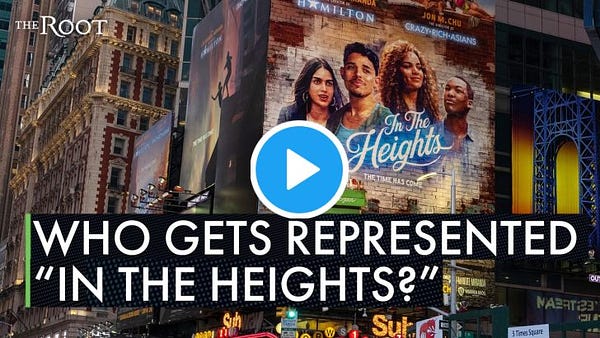The Unsung Power of Shutting the Hell Up
On recognizing when you're straying outside your lane
On the night Chadwick Boseman died, we tweeted something to the effect that it would be smart for white culture writers to cede the floor to their Black colleagues at least in the initial few hours after the shocking announcement, in order to give them precedence to frame the discussion surrounding a figure of cultural importance. We envisioned a bunch of insensitive “What Marvel Should Do With the Black Panther Franchise Now” takes going out before anyone had a chance to talk about how meaningful his life was – and it turns out that’s exactly what happened. But a couple of well-established media figures immediately screen-shot the tweet and invited their followers to mock us for our piously performative wokeness. We mention this not as an airing of grievances but as an illustration (to us, at least) that the idea of not weighing in on a topic was more alien to some people in media than we had realized.
As we said when we launched this irregular endeavor, we have learned over the years not to write or opine on topics that fall far outside our experiences or knowledge. Sometimes we feel weird even pointing that out, because that would seem to be a no-brainer not just for writers or self-proclaimed culture critics but for everyone, in as general a sense as possible. It’s always best in life to shut up if you don’t know what you’re talking about, right? But “opinionated” is literally part of our brand and we don’t live in a time where staying in your lane is as valued in practice as it is in theory. Sometimes you’ve just got to make a point of withdrawing. Right now, there’s an important conversation surrounding colorism and Latinx representation regarding the casting decisions for director John Chu’s adaptation of Lin-Manuel Miranda’s pre-Hamilton hit, In the Heights. We’ve never seen a conversation about a movie or other pop culture product change so completely and so quickly as the one surrounding this film. It’s been a fascinating thing to watch as the initial rapturous reviews gave way to much more nuanced and considered critiques about honest representation and the history of colorism in Latinx portrayals in the mainstream. It’s a powerful and fascinating conversation and many smart, learned or important people are weighing in on it. We are not counted among them, happily.
To be fair, even before the conversation about the film’s casting of mostly light-skinned Latinx actors for the main parts took over the discourse surrounding the film (launched by The Root’s Felice León, who asked director John Chu and several cast members about the film’s lack of Black Latinx characters in an interview that immediately went viral), we already knew we weren’t going to be weighing in on it in any meaningful way. The film didn’t particularly appeal to either of us and we’re comfortable admitting that Lin-Manuel Miranda’s overly earnest style of musical just isn’t to our tastes. We’re too Gen X for it. Say what you will about those kids in Rent – they were naïve, entitled and not as talented as they claimed to be – but at least the play had a healthy sheen of cynicism about how the world worked and who it rewarded or punished. Even so, we made one vaguely negative tweet about In the Heights and were immediately told not to express such sentiments because of the film’s importance to the Latinx community (of which one of us is a member) and also to examine whether we had lost the capacity for joy. For some very online people, “this thing I love” and “feeling joy” are completely bound up in each other to the extent that they simply can’t fathom one without the other. That’s basically fan culture in a nutshell and it’s the kind of nonsense from which we have always retreated almost immediately when we come across it.
It’s not that we were shushed or scared into compliance; it’s just that we recognize our inability to assess the work fairly at the same time we recognize that you have to be careful when criticizing a work of considered cultural or racial importance with a passionate fan base supporting it. If you can’t give the critique the kind of consideration it requires, it’s best for everyone to just let the conversation carry on without you. We think it’s important to point out when we do that not to pat ourselves on the back or virtue-signal our wokeness but because the higher you sit on the privilege ladder, the more responsibility you have to talk to the folks on or near your rung about when it’s time to shut up and cede the conversation. This isn’t “Hooray for us and our sensitivity,” it’s a plea -- especially to white, cis people -- to normalize the idea that it’s a good thing to let certain topics be led entirely by the people most affected by them. It’s weird to us how alien this idea seems to be among many opinion writers, but we have to assume we’re being naïve about it because we’ve been largely self-published for most of our career. Not every journalist or critic gets the right to refuse assignments, after all, but every writer should understand in their heart that the world will carry on just fine without their input, no matter how badly they might want to give it. Sometimes, the best thing any writer can do is be quiet and listen.
Now substitute “white person” for “writer” in the previous two sentences.
In other pop culture news we’d rather avoid, Chrissy Teigen looks to be well and truly canceled this time. This has probably been one of the most over-discussed celebrity topics of the past week, fueled by Teigen’s return to social media with a long and seemingly heartfelt apology regarding her actions bullying Courtney Stodden a decade ago. We think the fascination surrounding this is of that classic celebrity-watching variety: the “there but for the grace of God” pity watch/roasting. Celebrities stand in for our own aspirations and our own self-consciousness, which is why we lash out at them so hard when they disappoint us or do things that remind us of ourselves. People love the Chrissy saga because it touches on our understanding of acceptable social media behavior changing over time (shitposting stopped being seen as harmless online fun after the 2016 election) and offers the awkwardness of watching a seemingly un-self-aware celebrity failing to deal with a fairly clear case of unhealthy social media engagement.
The least interesting thing we could do is parse and pick apart her apology, which is, after all, ostensibly not meant for us (although it’s way more about addressing the public than addressing the person she harmed), but we thought it displayed a somewhat alarming need for the public’s love and attention and a not-particularly admirable focus entirely on herself and her feelings. She’s had a rough year because of her miscarriage and (not coincidentally) the backlash she received on social media for how she dealt with it. And of course it’s been little more than a year when she was considered the victim of bullying herself in a (not coincidentally) social media-fueled brouhaha that erupted when foodie author and influencer Alison Roman made some unkind comments that were interpreted to be racist. She’s the definition of being Too Online and we think the emotional pleas to be loved and understood didn’t sound like they were coming from the healthiest of places. The cynical take is that she made the decision to post such a naked plea for forgiveness because she’s losing quite a few business deals over her past behavior, but we think it’s important to note that she’s displaying the kind of unhealthy neediness that comes with too much of a focus on clout-chasing and attention-seeking. She’d be doing herself, her business, and maybe even her family the most good by getting offline for good.
Having said all that, it’s extremely notable that in this year of powerful people complaining endlessly about a cancel culture that largely leaves them untouched, the one famous person who truly looks to be facing a public cancellation is a woman of color. We’re not saying she doesn’t deserve backlash, but it’s worth noting who faces consequences and who doesn’t.
I Was Told There Would be Cat Pictures
Miss Miu Miu, feeling yummy at the thought of you liking and subscribing.
[Picture credit: Photo by Justin Lawrence, Tom & Lorenzo]








I think it takes a lot of restraint to know when to stay silent. It’s rare to see people like you guys take that stand. Fan culture is weird. The extreme parts of fandom can’t tolerate any criticism. I think 2 things can be true. In the heights can be enjoyable AND br colorist. I think some people are afraid that if something featuring a marginalized cast is critiqued, we may never get another project like that. The feeling being we need to support all projects good or bad.
I think the biggest issue with Chrissy Teigan is the depth of her shit post. It’s bad enough she posted online, but to DM & tell someone to kill themselves was probably a bridge too far. Instead of all these long winded post she keeps making, donate to an anti bully organization, then log off for a few months.
One of the best moments from season 2 of "Legendary" was Law Roach saying to the guest judge, who was interrupting Leomy Maldonado giving advice to a House member, "Shush. This isn't for you. This is Ballroom to Ballroom." If I have learned one single thing in the past few years, it's that there is a time to talk and a time to Listen. A time to not insert myself into conversations that do not belong to me. I don't think you two are being pious or doing "performative wokeness". I think you are trying to counsel people who clearly don't want to be told to shush, this isn't for them.
Everyone has opinions, and are entitled to them, but that doesn't mean you get to just open your big yap and espouse them. I'll be the first to tell someone non-female to take all the seats if they want to argue about reproductive rights.